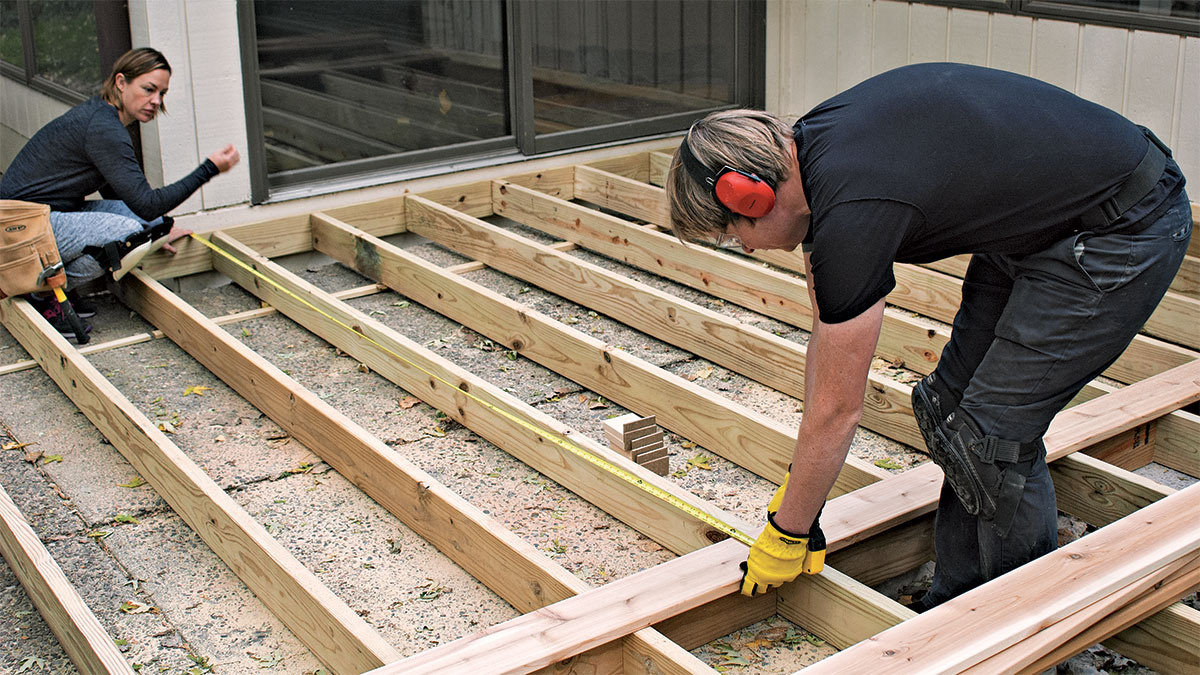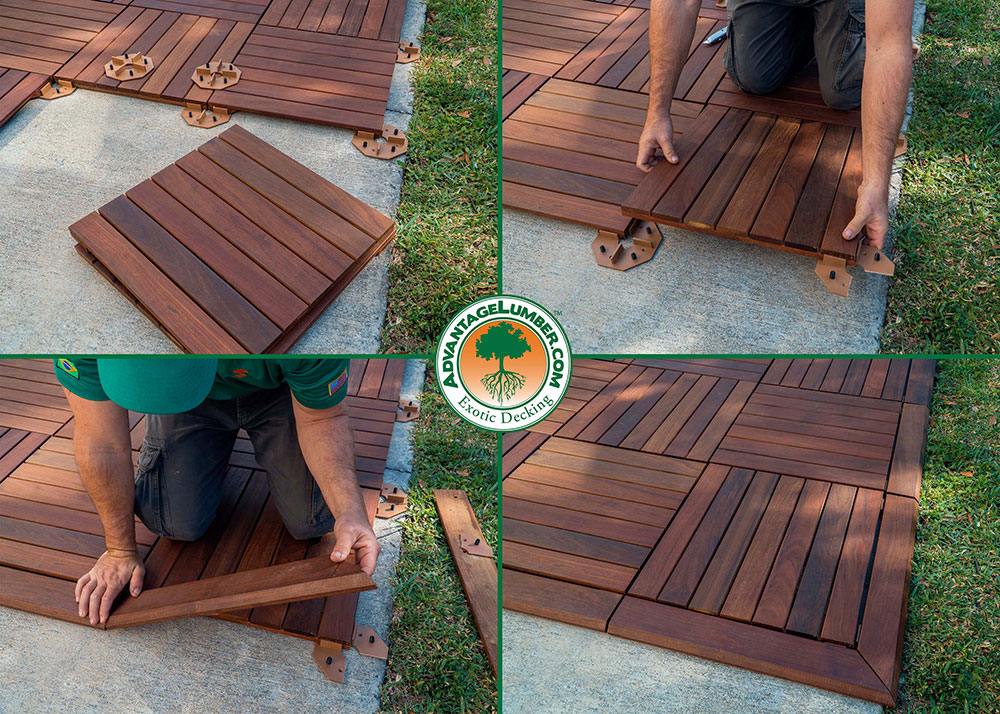A successful deck installation starts with careful planning and a trustworthy crew.
A successful deck installation starts with careful planning and a trustworthy crew.
Blog Article
How to Choose the Right Materials for Your Deck Installation Task
Picking the suitable materials for your deck installation project can appear challenging. The key is to stabilize your spending plan, design choices, and lifestyle requires to create a deck that will boost your exterior area for years to come.
Comprehending the Different Sorts Of Deck Products
When embarking on a deck installation job, the choice of products comes to be a crucial choice. Compound materials, on the other hand, are a mix of wood and plastic, providing toughness and resistance to weather aspects. By comprehending these distinctions, homeowners can make a more enlightened choice on the most ideal deck material for their specific needs.
Examining the Resilience and Upkeep Needs of Deck Products
Examining the durability and maintenance demands of deck materials is a crucial step in deck installment. Longevity entails the material's capacity to withstand extreme climate problems, wear and tear, and its long life.
Comprehending maintenance demands is similarly essential. Some products call for normal securing or tarnishing to maintain their appearance and withstand wetness damages, while others, like composite outdoor decking, require less upkeep. By examining these variables, one can choose the most suitable decking product, guaranteeing an equilibrium between resilience, maintenance demands, and visual charm.
Price Evaluation: Contrasting Timber and Compound Decking
Although cost may initially seem like a secondary problem, it is a significant element when comparing timber and composite outdoor decking. On the various other hand, composite decking, while more expensive initially, requires less upkeep, possibly minimizing long-lasting costs. Potential deck owners must consider their spending plan and readiness to maintain their decks when choosing between timber and composite outdoor decking.
Appearances and Layout Flexibility of Decking Products
All-natural wood outdoor decking offers a traditional, timeless look, while composite products offer a broad range of colors and structures to match varied preferences and designs. Composite materials, while much less versatile in layout, are still versatile sufficient for the majority of deck styles. These factors, for that reason, are critical components in the choice of decking material.
Environmental Impact of Decking Materials
When choosing decking materials, one should think about not only visual appeals and sturdiness, but likewise the environmental impact. It's essential to evaluate the sustainability of products and check out recycled decking options. Recognizing the potential effect on local ecosystems will certainly make sure a more eco liable option.
Assessing Material Sustainability
In the world of deck building and construction, assessing product sustainability is an important action. This includes examining the ecological impact of each potential material, taking into consideration factors such as the power required for its manufacturing, its carbon footprint, and its end-of-life disposal or reusing choices. Wood is an eco-friendly resource, yet unsustainable logging techniques can lead to deforestation. Alternatively, composite outdoor decking products commonly combine timber and plastic, lowering the need for brand-new lumber yet enhancing reliance on fossil gas. Light weight aluminum and other metals might be more resilient and recyclable, yet their extraction and handling can be energy-intensive. Thus, the option of outdoor decking materials ought to stabilize functionality, looks, expense, and sustainability to make sure an accountable and durable installment.
Recycled Decking Alternatives

Composite decking is particularly popular because of its sturdiness and ease of maintenance. It's immune to rot, pests, and fading, making it a long-lasting option. Recycled plastic outdoor decking, on the various other hand, is highly resilient and needs marginal upkeep. While these materials might lug a greater preliminary cost, their longevity and minimized environmental influence make them a smart investment for the eco-conscious homeowner.

Effect On Local Communities
While the benefits of using recycled materials for outdoor decking can not be overemphasized, it's this website similarly crucial to take into consideration the broader ecological implications of these choices. The extraction, processing, and transportation of products can profoundly influence regional ecological communities. Logging for timber decking adds to habitat loss and climate adjustment. Also the manufacturing of composite materials can launch harmful discharges. On the other hand, making use of recycled or sustainably sourced materials can assist reduce these impacts. In addition, considering the lifespan of products can minimize ecological impact; longer-lasting options need much less regular substitute, hence conserving resources. Ultimately, appropriate disposal of old outdoor decking is essential to minimizing landfill waste (deck installation). Essentially, an eco-conscious deck project needs cautious material selection, lasting sourcing, and accountable disposal.
Making Your Decision: Tips for Picking the most effective Deck Materials
As the post shifts right into the subtopic of "Making Your Final Choice: Tips for Selecting the most effective Deck Products", it is essential to comprehend the selection of deck products available. Striking an equilibrium in between durability and looks is essential in this selection procedure. The following conversation will assist viewers in making an educated selection based upon these crucial considerations.
Recognizing Different Deck Materials
The task of picking the right materials for your deck setup can appear intimidating due to the substantial range of choices readily available. However, comprehending the various products can streamline this procedure. Wood is a preferred choice, using a traditional visual and price. Kinds of timber used include pressure-treated lumber, cedar, and redwood. Compound products, made from a mix of timber and plastic, are low-maintenance and immune to rot and pests. Plastic or PVC decks are a lot more long lasting and call for much less upkeep than composite materials, but they can look less natural. Aluminum decks are solid, light-weight, and immune to rot, but they are additionally the most expensive alternative. Each material has its own advantages and downsides, making it critical to consider your specific requirements prior to making a final decision.
Longevity vs. Aesthetic Appeals Balance
Balancing sturdiness with aesthetics can be a difficulty when choosing deck products - deck installation near me. High-traffic areas might require sturdy products like composite outdoor decking, which withstands wear and tear however may do not have the all-natural charm of wood. House owners need to strike a balance, considering both the deck's sensible needs and their aesthetic choices.
Verdict
Finally, choosing the ideal products for your deck setup project calls for mindful factor to consider of factors such as resilience, upkeep, price, appearances, and ecological effect. Whether find you go with traditional wood or composite materials, your option ought to align with your budget plan, design choices, and lifestyle. Eventually, the most effective outdoor decking product is one that improves your outside room and gives satisfaction for many years to come.
Report this page